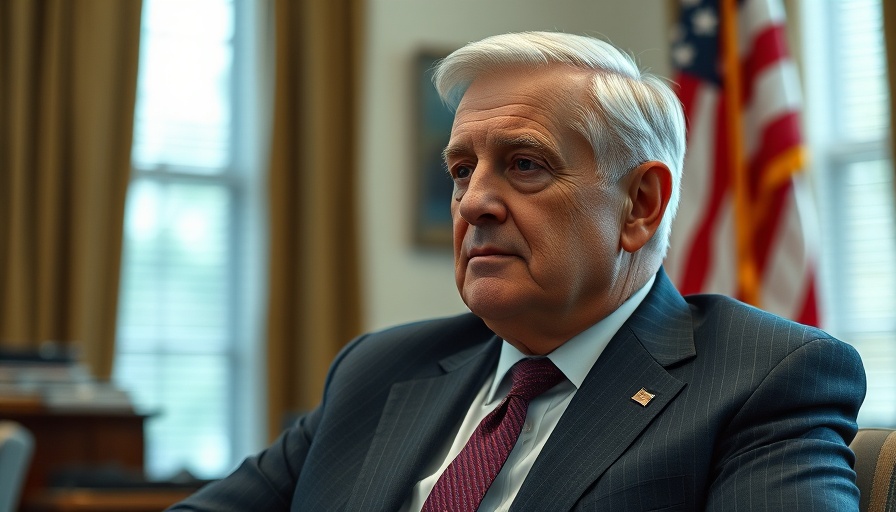
The Rising Tide of Uncertainty: What Tariffs Mean for Consumers
In a time when many Americans are feeling the squeeze, President Trump continues to advocate for his economic policies by promoting a steady stream of tariffs aimed at foreign goods. This week’s announcement of a 25% tariff on foreign-made cars and parts comes amid a significant drop in consumer confidence, which has plummeted to its lowest point since January 2021. While Trump insists these measures will lead to lower prices and a more prosperous economy, expert opinions suggest otherwise, leaving consumers in a state of uncertainty.
Understanding the Economic Climate
According to recent reports, the number of Americans anticipating a recession has skyrocketed, reaching a nine-month high. Despite the optimistic rhetoric from the White House, data reveals a stark contrast between government views and public sentiment. Notably, Mark Zandi, chief economist at Moody's Analytics, has forecasted that the new tariffs could potentially increase the average car price by $5,000 to $10,000 within the year, contradicting the promise of reduced costs.
What the White House Is Not Revealing
As part of his promotion for these tariffs, Trump has touted an upcoming "Liberation Day" on April 2, when reciprocal tariffs are expected to come into force. However, details regarding this wave of tariffs remain vague, and consumers are left guessing about how these changes will affect their wallets. Meanwhile, Trump has claimed that those impacted by the tariffs will be surprised by their outcome. This lack of clarity has left many Americans anxious about rising costs and the overall health of the economy.
The Bigger Picture: Consumer Trust Erosion
What’s particularly concerning is the erosion of consumer trust. Recent findings indicate that Americans’ outlook on their financial futures has reached its lowest levels in over a decade. This decline in confidence can greatly impact spending patterns, which in turn influences the economy. If consumers feel uncertain about their financial futures, they may cut back on spending, further complicating the economic landscape.
Counterarguments: Is the Administration on the Right Track?
While the administration argues that tariffs will enable American businesses to thrive and create jobs, many experts warn that the short-term gains could be outweighed by long-term consequences. Tariffs could lead to rising prices not only for cars but also for various everyday goods. It’s important to acknowledge the diverse perspectives about the effectiveness of tariffs: some argue they protect American jobs while others see them as detrimental to economic growth.
Your Role in the Economic Equation
Given the rising uncertainty, consumers may feel compelled to become more proactive about their purchasing decisions. Staying informed about economic changes and advocating for transparent policies is crucial. Understanding how tariffs could impact prices at the grocery store or the car dealership can empower consumers to make better financial choices.
 Add Row
Add Row  Add
Add 




Write A Comment